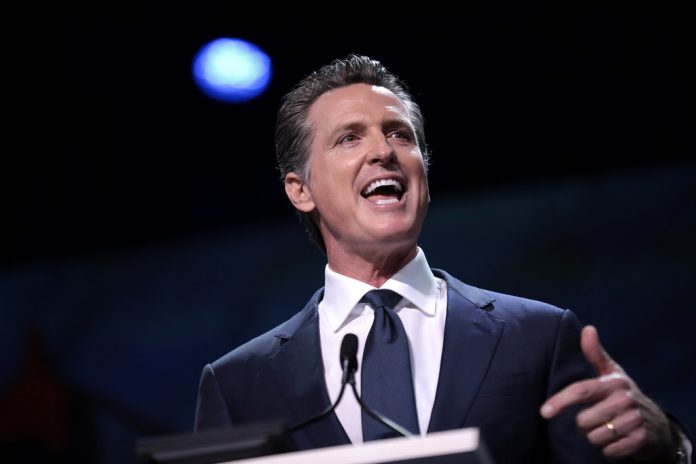The concept of federalism should be fairly straightforward: states regulate within their own borders, and the federal government handles interstate issues. But while most states have seen their reach exceed their grasp from time to time, California is the kid in the corner of the class with the dunce cap on. Once again, the Golden State’s inability to stop itself from reaching across its borders is rearing its ugly head — but this time, the Supreme Court has a chance to put a stop to it.
California’s extra jurisdictional power-grabs are starting to add up. Sometimes it concerns taxes, such as the state’s attempts to apply its income tax to out-of-state businesses or force investors with the most tangential relationship to a California business to pay a “doing business” tax. Other times it involves regulations, like California’s sweeping consumer privacy legislation or auto emissions standards. In all these cases, California took advantage of its status as the largest state economy in the country to effectively impose national law from Sacramento.
The Supreme Court’s opportunity to rein this in comes in the form of yet another regulation on out-of-state businesses — requiring pork producers selling into California to comply with requirements on the size of pig enclosures. By agreeing to hear the case of National Pork Producers v. Ross, the Court gave itself the opportunity not only to put California back within its own jurisdiction, but also to create a stronger precedent nationwide that a state’s authority ends where its borders do.
At issue in this case is not the merits of regulations on the size of pig enclosures, but California’s ability to impose them. The law being challenged requires all pork sold into California to abide by certain size requirements for pig enclosures.
Note the way the law is written — had California attempted to regulate pen sizes for California producers, there would be no constitutional issue. But since California imports 99.87 percent of its pork, the state no doubt determined that it would be far more impactful to regulate sales into the state.
As a state that represents roughly 15 percent of the national pork market, California leaves out-of-state producers with two bad choices. Either they must make costly alterations to their pig enclosures, or cut out a major market. Whichever option they choose, pork producers in Iowa will lose money as a result of a law passed in a state halfway across the country.
The Framers understood that having states impeding interstate trade through taxes, regulations, and trade barriers would only harm the Union as a whole. That’s why they crafted the Constitution in such a way as to protect state sovereignty within their borders but to empower Congress to regulate the national economy.
There’s another clear problem with states taxing and regulating outside their borders: they have little incentive to consider the tradeoffs of their policies. California’s pork industry is so tiny that harms to pork producers as a result of pen enclosure regulations are a minimal concern. The complaints of pork producers from Iowa or Missouri, on the other hand, can be tuned out by California legislators with no electoral consequences.
California, and to a lesser extent other states, cannot be allowed to set national policy. The Supreme Court is presented with a golden opportunity to reverse this growing trend of states snatching the power over interstate commerce away from the federal government — it must be sure not to allow it to slip by.












Let’s EXPAND this trend beyond pork. How about we add vehicle emissions & mileage standards and Green New Deal initiatives to the ledger…